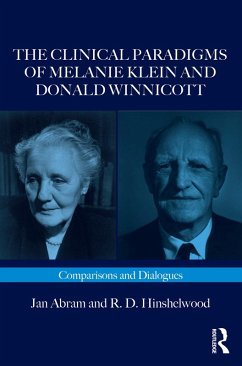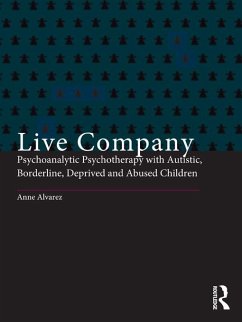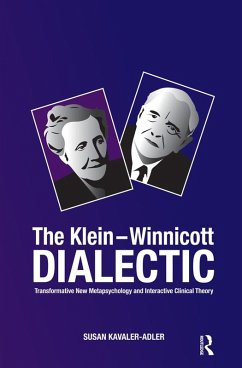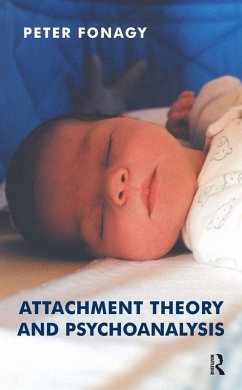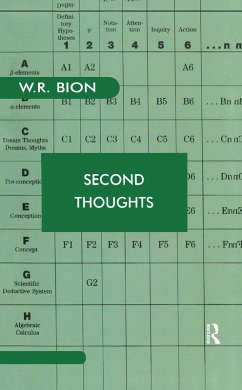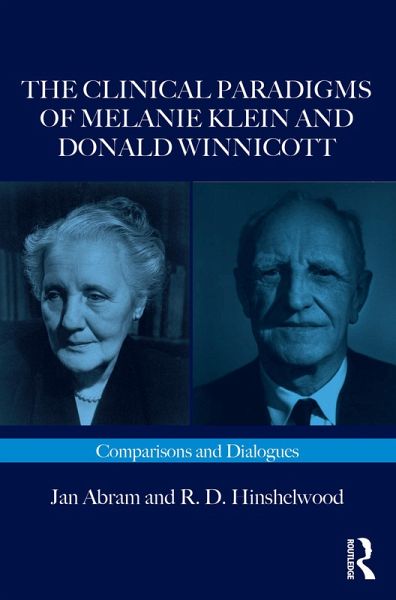
The Clinical Paradigms of Melanie Klein and Donald Winnicott (eBook, PDF)
Comparisons and Dialogues
Versandkostenfrei!
Sofort per Download lieferbar
33,95 €
inkl. MwSt.
Weitere Ausgaben:

PAYBACK Punkte
17 °P sammeln!
The Clinical Paradigms of Melanie Klein and Donald Winnicott seeks to introduce the distinctive psychoanalytic basic principles of both Klein and Winnicott, to compare and contrast the way in which their concepts evolved, and to show how their different approaches contribute to distinctive psychoanalytic paradigms. The aim is twofold - to introduce and to prompt research.The book consists of five main parts each with two chapters, one each by Abram and Hinshelwood that describes the views of Klein and of Winnicott on 5 chosen issues: Basic principles Early psychic development The role of the e...
The Clinical Paradigms of Melanie Klein and Donald Winnicott seeks to introduce the distinctive psychoanalytic basic principles of both Klein and Winnicott, to compare and contrast the way in which their concepts evolved, and to show how their different approaches contribute to distinctive psychoanalytic paradigms. The aim is twofold - to introduce and to prompt research.
The book consists of five main parts each with two chapters, one each by Abram and Hinshelwood that describes the views of Klein and of Winnicott on 5 chosen issues:
Each of the 5 parts will conclude with a dialogue between the authors on the topic of the chapter.
The Clinical Paradigms of Melanie Klein and Donald Winnicott will appeal to who are being introduced to psychoanalytic ideas and especially to both these two schools of British Object Relations.
The book consists of five main parts each with two chapters, one each by Abram and Hinshelwood that describes the views of Klein and of Winnicott on 5 chosen issues:
- Basic principles
- Early psychic development
- The role of the external object
- The psychoanalytic concept of psychic pain
- Conclusions on divergences and convergences
Each of the 5 parts will conclude with a dialogue between the authors on the topic of the chapter.
The Clinical Paradigms of Melanie Klein and Donald Winnicott will appeal to who are being introduced to psychoanalytic ideas and especially to both these two schools of British Object Relations.
Dieser Download kann aus rechtlichen Gründen nur mit Rechnungsadresse in A, B, BG, CY, CZ, D, DK, EW, E, FIN, F, GR, HR, H, IRL, I, LT, L, LR, M, NL, PL, P, R, S, SLO, SK ausgeliefert werden.




